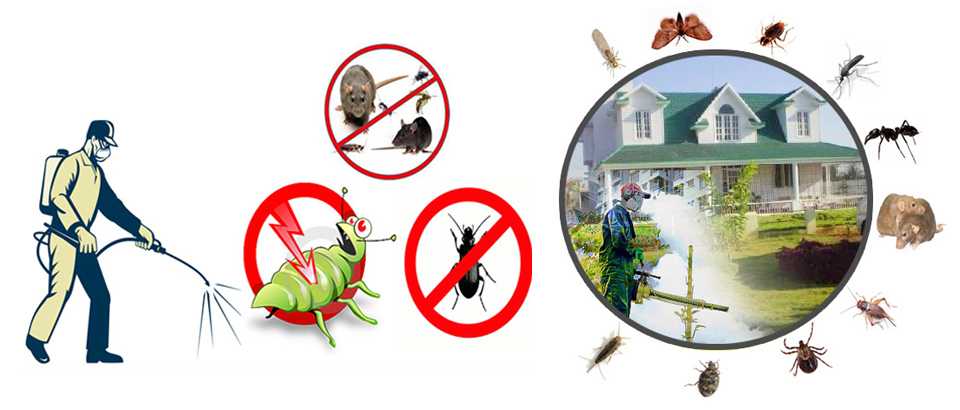
Training in pest management is more than passing a test—it’s about learning how to protect people, buildings, and the environment responsibly. This guide explains the role of professional education, why it matters, and how it prepares you for real-world work.
The Problem: Why Learning on the Job Isn’t Enough
Many people enter pest control through hands-on work, starting as helpers or assistants. While this can provide exposure, it often leaves gaps in knowledge. Without proper education, workers may struggle with questions like:
Which pesticide is safest for use around children?
How do different building types in New York affect treatment methods?
What’s the legal risk of using restricted chemicals without a license?
These gaps lead to mistakes. Chemicals may be applied incorrectly, infestations can worsen, and technicians may unintentionally endanger residents. Employers then face complaints, possible fines, and a loss of trust from clients.
This is where structured training comes in. Enrolling in a pest control school helps aspiring professionals build not only technical skills but also the confidence to handle challenging situations safely.
The Agitation: When Inexperience Creates Bigger Problems
Picture a newly hired technician sent to an old brownstone in Harlem with a bed bug complaint. The technician applies off-the-shelf sprays, thinking more product means better results. Within weeks, tenants report bites again—only worse this time.
Because bed bugs hide in cracks, floorboards, and even electrical outlets, improper treatment made them spread further. Tenants were furious, the property owner demanded answers, and the company had to send a licensed expert to fix the issue.
Inexperience doesn’t just cause one bad review—it can damage a company’s reputation. More importantly, families who trust pest professionals may end up living in unsafe or unhealthy conditions.
A Case Study: Success Through Education in New York
A pest management company in Queens faced repeated issues in a mid-rise apartment building near Jackson Heights. Tenants complained about roaches and rodents despite frequent visits from technicians. The company realized many of their staff lacked formal training.
They invested in sending their employees to structured pesticide classes and later enrolled them in a local pest control school. The difference was immediate. Technicians returned with deeper knowledge of integrated pest management (IPM), safe chemical handling, and building-specific treatment plans.
Armed with this training, the team identified food storage problems in shared kitchens, applied targeted bait systems, and worked with management to improve waste disposal. Within two months, tenant complaints dropped dramatically.
The company didn’t just resolve the pest issue—they built stronger relationships with residents and secured more contracts because of their professionalism.
The Solution: Why Pest Control School Makes a Difference
At a pest control school, students learn the science behind insects, rodents, and their behaviors. Knowing why pests choose certain environments helps technicians apply long-lasting solutions instead of quick fixes.
Improper use of chemicals can harm children, pets, and even technicians themselves. Formal education provides guidance on correct dosages, protective gear, and legal restrictions.
Most states, including New York, require certification to apply certain pesticides. Training programs often align with licensing exams, giving students the exact knowledge needed to succeed.
Real-world pest control is rarely simple. Schools teach students how to ****yze infestations in different environments, whether it’s a Manhattan office tower, a Queens duplex, or a Brooklyn school building.
Employers value candidates with proper education because it reduces liability. Having credentials can mean higher pay, faster promotions, and even the ability to start your own pest control business.
Connecting Education to Licensing
Many people begin their search with “pesticide classes” when preparing for licensing exams. These classes provide focused study on laws, safety, and technical details. But full programs at a pest control school go deeper—covering both certification needs and practical field skills.
In other words, short classes help you pass the test, while a complete program ensures you’re ready for the job. The two work hand-in-hand for anyone serious about a career in pest management.
What to Expect in Pest Control School
Training programs vary, but most include:
Classroom instruction: covering pest biology, pesticide safety, and regulations.
Hands-on practice: learning how to use sprayers, bait systems, and monitoring tools.
Field simulations: practicing treatment plans in settings that mimic real homes or businesses.
Exam preparation: reviewing licensing requirements so graduates are test-ready.
This combination ensures students don’t just memorize answers but also understand how to apply knowledge in the field.
Expert Advice for Students
Take notes and ask questions. The more you engage, the more you’ll retain.
Focus on IPM strategies. Prevention and long-term solutions often matter more than chemicals alone.
Network with classmates. Many go on to different companies, creating valuable industry connections.
Think safety first. Whether in class or in the field, safety habits learned early stick with you.
The Bigger Picture: Why Education Protects Everyone
Pest control isn’t only about eliminating pests—it’s about protecting communities. Schools, hospitals, restaurants, and apartment buildings all depend on safe, effective treatment. When technicians are properly trained, residents live healthier lives, and businesses run more smoothly.
Education ensures that treatments are not only effective but also responsible. This means fewer chemical accidents, reduced environmental damage, and longer-lasting results for clients.
Taking the Next Step
If you’re serious about pest control as a career, enrolling in a structured program is one of the smartest choices you can make. It builds credibility, improves safety, and prepares you for long-term success.
Whether you’re just starting out or already working in the field, the right training can transform your career path.
Call to Action
Don’t risk unsafe treatments or stalled career opportunities. Invest in professional training today. Whether through pesticide classes for exam prep or a full pest control school program, the knowledge you gain will protect families, improve communities, and secure your future in the industry.
| Categories: | Services / Home Services |
| Phone: | (718) 284-7378 |
| Address: | 1611 McDonald Ave, Brooklyn, NY 11230, United States |
| Website: | View our site |
| Email: | johndavid.work7@gmail.com |